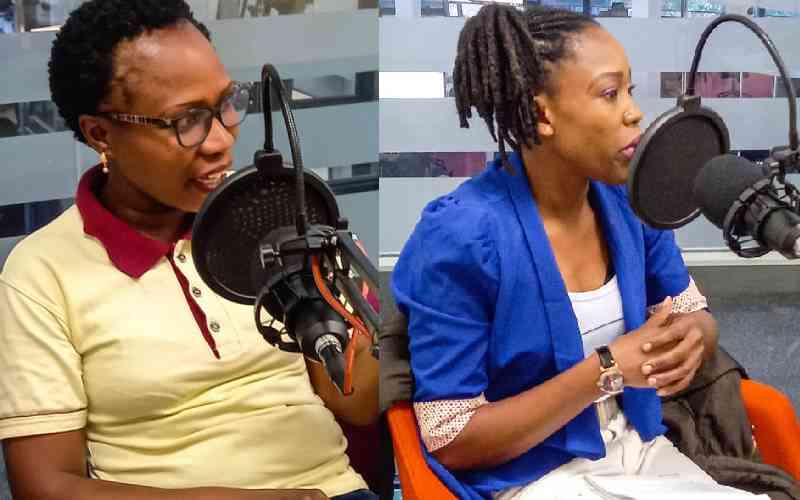
Advocates of gender equality have called on fellow stakeholders not to set aside efforts to empower the boy child even as they work on projects to uplift the girl child.
During a podcast interview with Standard Group Gender desk editor Najma Ismail, the advocates also noted that more women than men are taking up empowerment opportunities offered to them and challenged men to sign up for community empowerment initiatives saying these are not just meant for women.
Salome Mbugua, a member of the Uthiru Rescue Team said that the notion that the girl child has been over-empowered may come from the fact that initiatives to empower women and girls are becoming more and more visible and more women than men are taking up opportunities that target both genders.
"The men are not taking up these chances and the women are grabbing them. Like in my own community, Uthiru, we have so many initiatives like self-help groups, CBOs and such...most of them are run by women. So you see, women have taken up these roles to empower themselves whereas the men are still waiting for someone to come in and empower them," Mbugua says.
According to Rosemary Kinuthia, founder and director of the African Boychild Network, the narrative that the girl child has been over-empowered may not be true but it is true that the boy child has also faced neglect, suppression and discrimination, especially in recent years.
Kinuthia says that as we fight backward cultural practices that are harmful to girls and women, we should keep the boy child's welfare in mind.
"The reality of things is that we are coming from a cultural background that was so rotten that discriminated against girls and women. What is happening today is that we want to get rid of that bad system and that is where the issue of equality comes in. However, equality does not mean that I progress at his expense. Equality does not mean that because (the boy child) has been advantaged before culturally, that this time around he should take a backseat."
- Is there a way to spot predators so we can avoid them?
- Why trauma bonding keeps victims tied to abusive partners
- Purple resistance: The digital uprising uniting women
- Canvas of Change: Fighting gender-based violence through art
Keep Reading
According to Kinuthia, the problem is that society is investing less and less in the boy child but is expecting the same outcome.
"Society has changed, but we are being very selective on what to drop and not what to drop. This young man, previously, had people around to support him - his parents, and his uncles - even in terms of wealth. People invested in the boy child so they had very high expectations of him. But does today's society invest the same in the modern body child as they used to? The answer is no," Kinuthia says. "So why then do we expect the same result even when we put in nothing in terms of investment? It cannot work!"
She adds that society's focus has changed and our expectation of the modern boy child should also change.
"If we don't invest in the boy child, don't expect anything from him. That's just black and white," she says.
The podcast, the second in a weekly series hosted Ismail and her colleague Christine Koech, was inspired by the public boychild vs girlchild debate that has been ongoing and is reignited every year following the announcement of national exam results.
The results, which have shown the gradual improvement of performance by girls compared to previous years, seemed to give some members of the public the impression that there was too much focus on helping girls through life and not enough on boys.
"I'll say that the girl child has not yet been empowered but we are almost there. If you look at before, at least right now, we have women leaders. But we are still not yet there," Mbugua says.
Listen to our previous podcast here
 The Standard Group Plc is a multi-media organization with investments in media
platforms spanning newspaper print
operations, television, radio broadcasting, digital and online services. The
Standard Group is recognized as a
leading multi-media house in Kenya with a key influence in matters of national
and international interest.
The Standard Group Plc is a multi-media organization with investments in media
platforms spanning newspaper print
operations, television, radio broadcasting, digital and online services. The
Standard Group is recognized as a
leading multi-media house in Kenya with a key influence in matters of national
and international interest.

